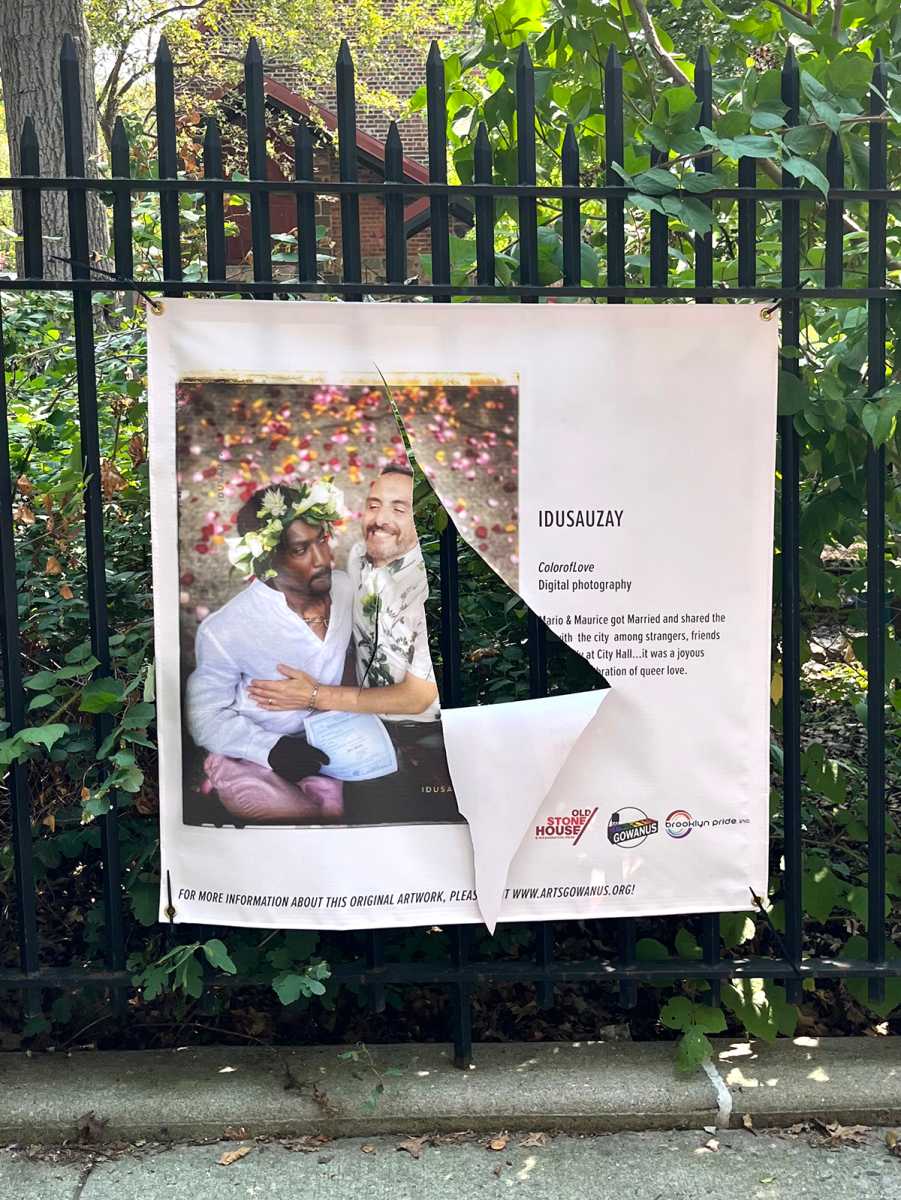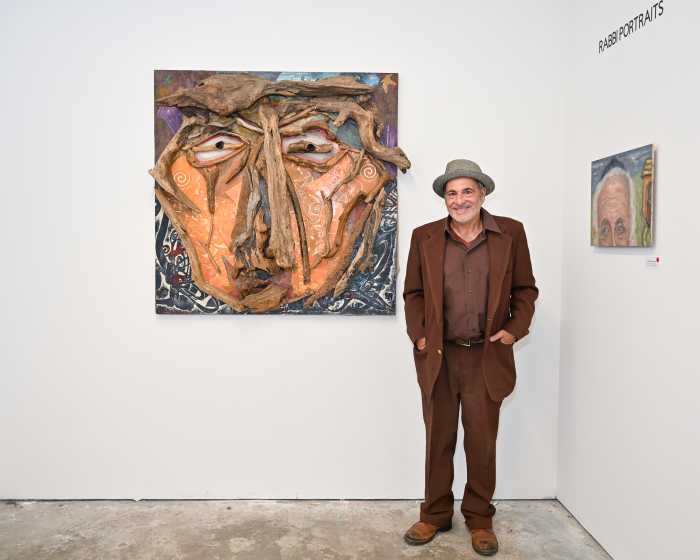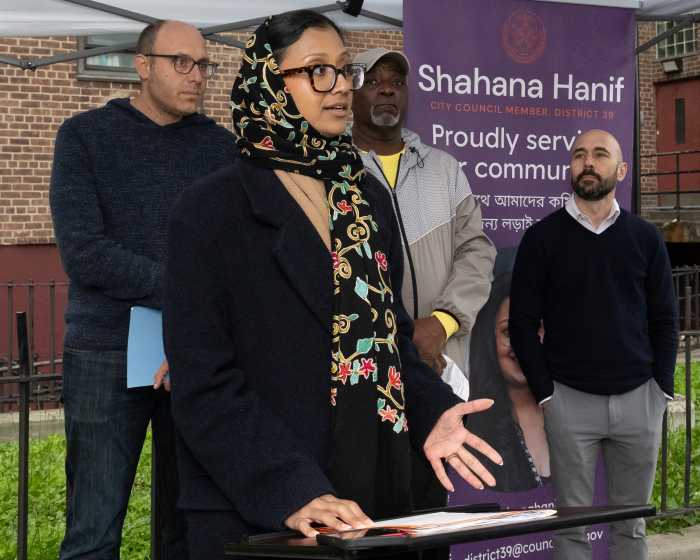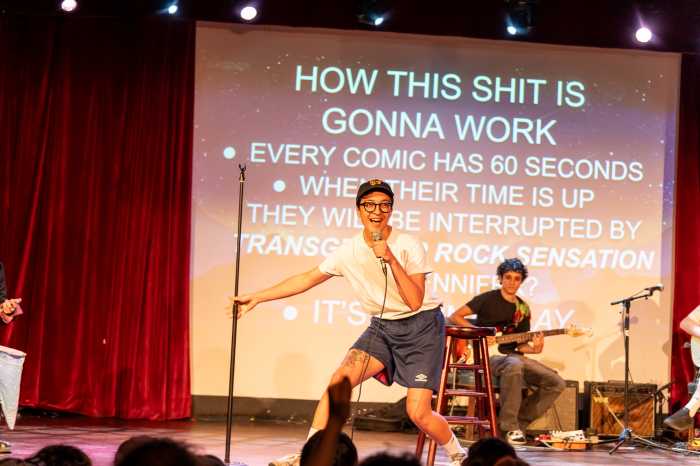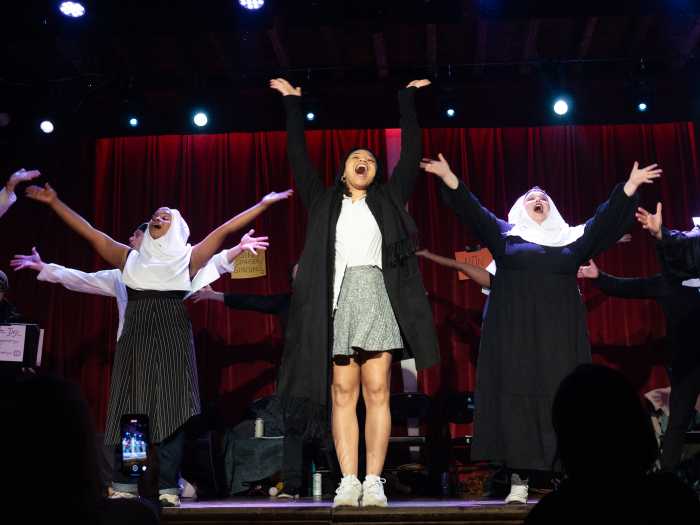On Aug. 7, Arts Gowanus program director Emily Chiavelli headed to the Old Stone House to replace part of the organization’s Pride: All Day, Every Day exhibit.
The public art show, featuring the works of more than 100 queer artists printed on banners and hung on the fences around the Old Stone House, had been vandalized again. Since the exhibit went up in June, Arts Gowanus has had to replace a quarter of the banners after they were destroyed.
Vandalism is nothing new for Arts Gowanus, Chiavelli said. Any public art installation, regardless of the organization or artist behind it, is a target for intentional defacement or accidental damage.
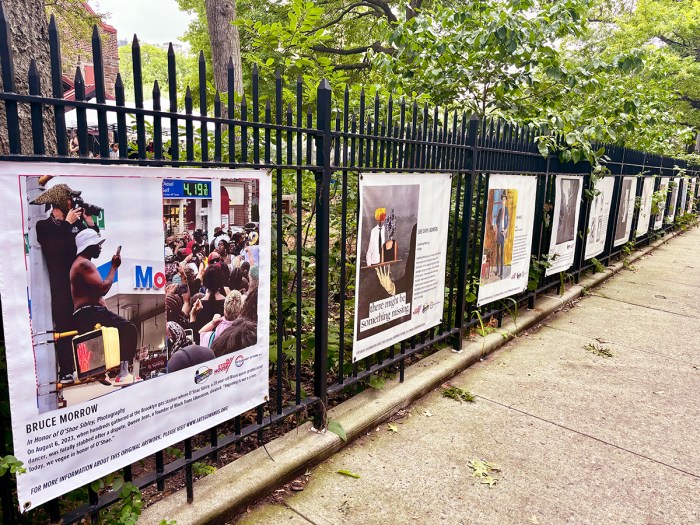
“It wasn’t until probably two weeks ago that it just started really ramping up,” she said.
Several of the banners have been written or scribbled on with markers, and some vandals have even written out their YouTube channels, asking for followers. Some have been more seriously damaged.
“A lot of them got slashed,” Chiavelli said. “It looks like someone literally brought a knife and cut them up, which I have not seen before.”
This was the second year Arts Gowanus collaborated with Brooklyn Pride and the Old Stone House on a Pride exhibition. It was hung on the first day of Pride Month, June 1, and will be on display until Aug. 31.
With the end of the show fast approaching, Arts Gowanus has been trying to replace the banners as quickly as possible. But it has become expensive fast. Sponsors usually cover the cost of the initial banners, but each replacement is paid for out of pocket.
“You know, we’re a really, really small nonprofit with a very, very tight budget,” Chiavelli said. “There are only two of us, Arts Gowanus is only two people and a handful of volunteers.”
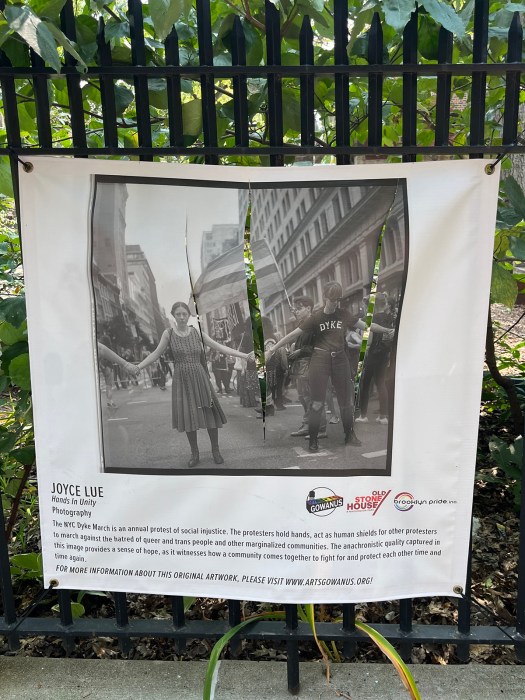
The community has come through with donations to help them pay for replacements, though. Seeing the Pride exhibit vandalized “did affect a lot of people,” Chiavelli said.
Chiavelli and Kim Maier, executive director of the Old Stone House, said the graffiti wasn’t overtly homophobic — and didn’t seem to be an intentional attack on queer art or artists.
“I think it’s just thoughtless,” Maier said.
Since she sees the exhibit every day, Maier has discovered many of the destroyed banners herself and had to update Chiavelli and Arts Gowanus director Johnny Thornton. She agreed that vandalism sometimes comes with the territory when it comes to public art.
“Last year we had a series of work on the longer fence around the field, and the work was quite high up, so no one could reach it,” she said. “But I would say for every one of these banner shows … there’s always some incidents of vandalism.”
Arts Gowanus is not focused on getting the police involved or trying to catch the vandals, but on replacing the artwork. Each artist gets to keep their banner after the show, Chiavelli said – some hang them in their homes, or cut out the smaller works and frame them, or even make bags out of them — but they can’t do that if the banners are destroyed and not replaced.
“We do hope that if anyone sees someone doing this, or knows who it is that’s doing these things, or is the person doing it themselves, we really hope they’ll stop, or they’ll talk to the person they know or the person they see doing it,” she said.
A few years ago, Maier recounted, the Old Stone House had a mural painted in a skate park. Someone vandalized it, but was quickly caught when they posted about it on social media.
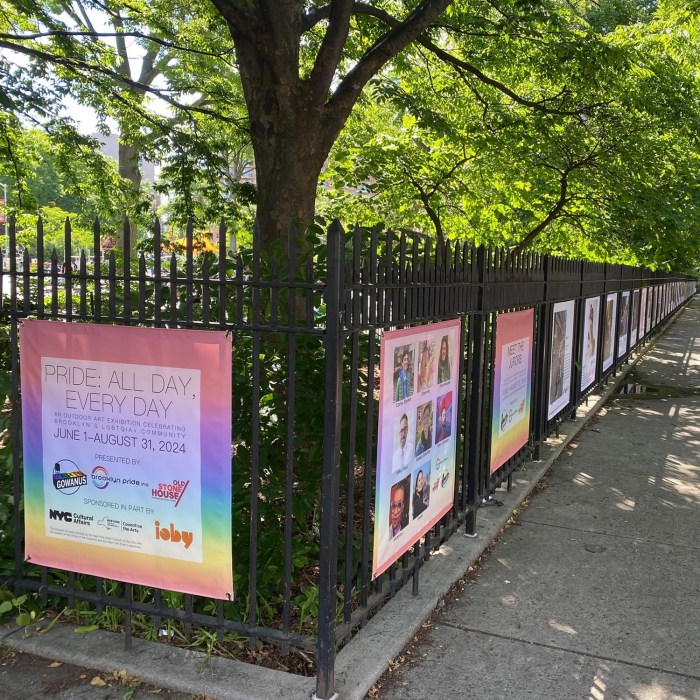
“In community, the skaters worked it out, and the kid who did the graffiti came and repaired the graffiti,” she said. “That was a full resolution, a community-based resolution to the incident, but that doesn’t normally happen.”
Despite that, people are respectful and careful of the Old Stone House and the art exhibitions most of the time, Maier said, and the repeated vandalism of the Pride exhibit is a “very unfortunate stretch of bad behavior.”
Chiavelli asked the community, and the vandals, to consider the people behind the artwork. In public, when the artist isn’t present, it can be easy to detach them from their pieces.
“This is a real artist, this is someone’s work and … life they’ve poured into this work,” she said. “Or it’s someone’s first exhibition ever, and they’re really excited, and they brought their whole family out to see this. I think it’s just important to remember that this isn’t just a faceless images that are put up. This is the work of artists in your own community.”


